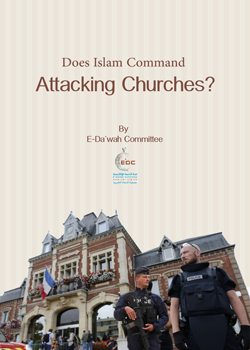
- E-Da`wah Committee (EDC)
- E-Da`wah Committee
- 2016
- 10
- 10267
- 4488
- 3774
It is safe to say that a given religion can be judged correctly only by two things: its own teachings and the practice of the mainstream doctrine of this religion. A religion cannot be judged by the centrifugal practices or beliefs of some followers, be they liberal or extremist, hither or thither.
Attacking the places of worship is a criminal act which is done by individual followers of all religions all over the world. It is unfair to claim that it is Muslims only who attack the places of worship.
In fact, Islam prohibits any assault against the places of worship. The alleged attacks on the places of worship if really carried out by Muslims go against the well-established Islamic teachings. Such acts serve as odd precedents in the Islamic history. Suffice it to say they break with tradition.
The Messenger of Allah once wrote to the bishop of Banu Al-Harith Ibn Ka’b and the bishops and priests of Najran, their followers and their monks that everything, small or great, pertaining to their churches, chapels and monasteries would remain in their possession, that Allah and His Messenger would guarantee that no bishop would be removed from his see, nor any monk from his monastery, nor any priest from his office and none of their rights or powers would be changed as long as they were sincere and good, and no cruelty would be shown to them. This was scribed by Al-Mughirah.
Umar ibn Al-Khattab, the Second Muslim Caliph, concluded a treaty with the people of Jerusalem which read:
This is the assurance of safety which the servant of God, Umar, the Commander of the Faithful, has granted to the people of Jerusalem. He has given them an assurance of safety for themselves, for their property, their churches, their crosses, the sick and the healthy of the city, and for all the rituals that belong to their religion. Their churches will not be inhabited [by Muslims] and will not be destroyed. Neither they, nor the land on which they stand, nor their crosses, nor their property will be damaged. They will not be forcibly converted. The people of Jerusalem must pay the poll tax like the people of [other] cities, and they must expel the Byzantines and the robbers. All this from the book they shall have as a pact of Allah, and as protection from his Messenger, from the Caliphs as well as from the Believers if they pay the jizyah. Witnesses of this are: Khalid bin Walid, `Amr bin al-`As, `Abd Al-Rahman bin `Awf and Mu`awiya bin Abi Sufyan. It was written with all present in the 15th year after Hegira.
Khalid bin Al-Walid, the renowned Muslim commander, concluded a similar treaty with the people of Damascus which read:
This is what Khalid bin Al-Walid shall grant to the people of Damascus: He shall grant them protection [and safety] for their lives, property [and possessions], their churches, and the walls of their cities. Nothing of their quarters will be destroyed nor shall anyone live in them. This they shall have as a pact of Allah, protection from his Messenger, from the Caliphs as well as from the Believers and nothing but good will remain for them if they pay the jizyah.










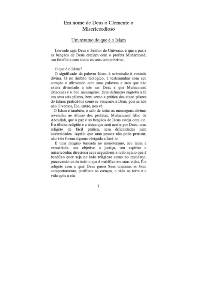
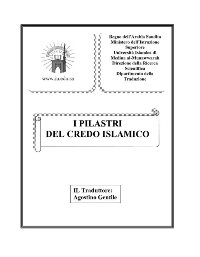
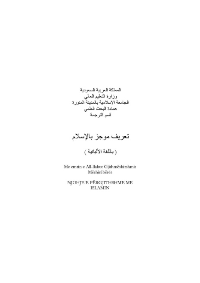
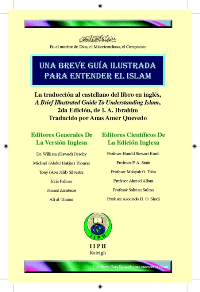
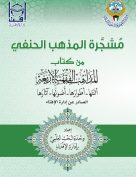



 Afar
Afar Afrikaans
Afrikaans Akan
Akan Albanian
Albanian Amharic
Amharic Armenian
Armenian Assamese
Assamese Avari
Avari Azerbaijani
Azerbaijani Basaa
Basaa Bengali
Bengali Bosnian
Bosnian Brahui
Brahui Bulgarian
Bulgarian Burmese
Burmese Catalan
Catalan Chami
Chami Chechen
Chechen Chichewa
Chichewa Circassian
Circassian Comorian
Comorian Czech
Czech Danish
Danish Dutch
Dutch Estonian
Estonian Finnish
Finnish Fulani
Fulani Georgian
Georgian Greek
Greek Gujarati
Gujarati Hausa
Hausa Hebrew
Hebrew Hungarian
Hungarian Icelandic
Icelandic Indonesian
Indonesian Ingush
Ingush Japanese
Japanese Jawla
Jawla Kannada
Kannada Kashmiri
Kashmiri Katlaniyah
Katlaniyah Kazakh
Kazakh Khmer
Khmer Kinyarwanda
Kinyarwanda Korean
Korean Kurdish
Kurdish Kyrgyz
Kyrgyz Latvian
Latvian Luganda
Luganda Macedonian
Macedonian Malagasy
Malagasy Malay
Malay Maldivian
Maldivian Maranao
Maranao Mongolian
Mongolian N'ko
N'ko Nepali
Nepali Norwegian
Norwegian Oromo
Oromo Pashto
Pashto Persian
Persian Polish
Polish Portuguese
Portuguese Romani - gypsy
Romani - gypsy Romanian
Romanian Russian
Russian Serbian
Serbian Sindhi
Sindhi Sinhalese
Sinhalese Slovak
Slovak Slovenian
Slovenian Somali
Somali Swahili
Swahili Swedish
Swedish Tagalog
Tagalog Tajik
Tajik Tamazight
Tamazight Tashamiya
Tashamiya Tatar
Tatar Thai
Thai Tigrinya
Tigrinya Turkish
Turkish Turkmen
Turkmen Ukrainian
Ukrainian Urdu
Urdu Uyghur
Uyghur Uzbek
Uzbek Vietnamese
Vietnamese Yoruba
Yoruba Zulu
Zulu